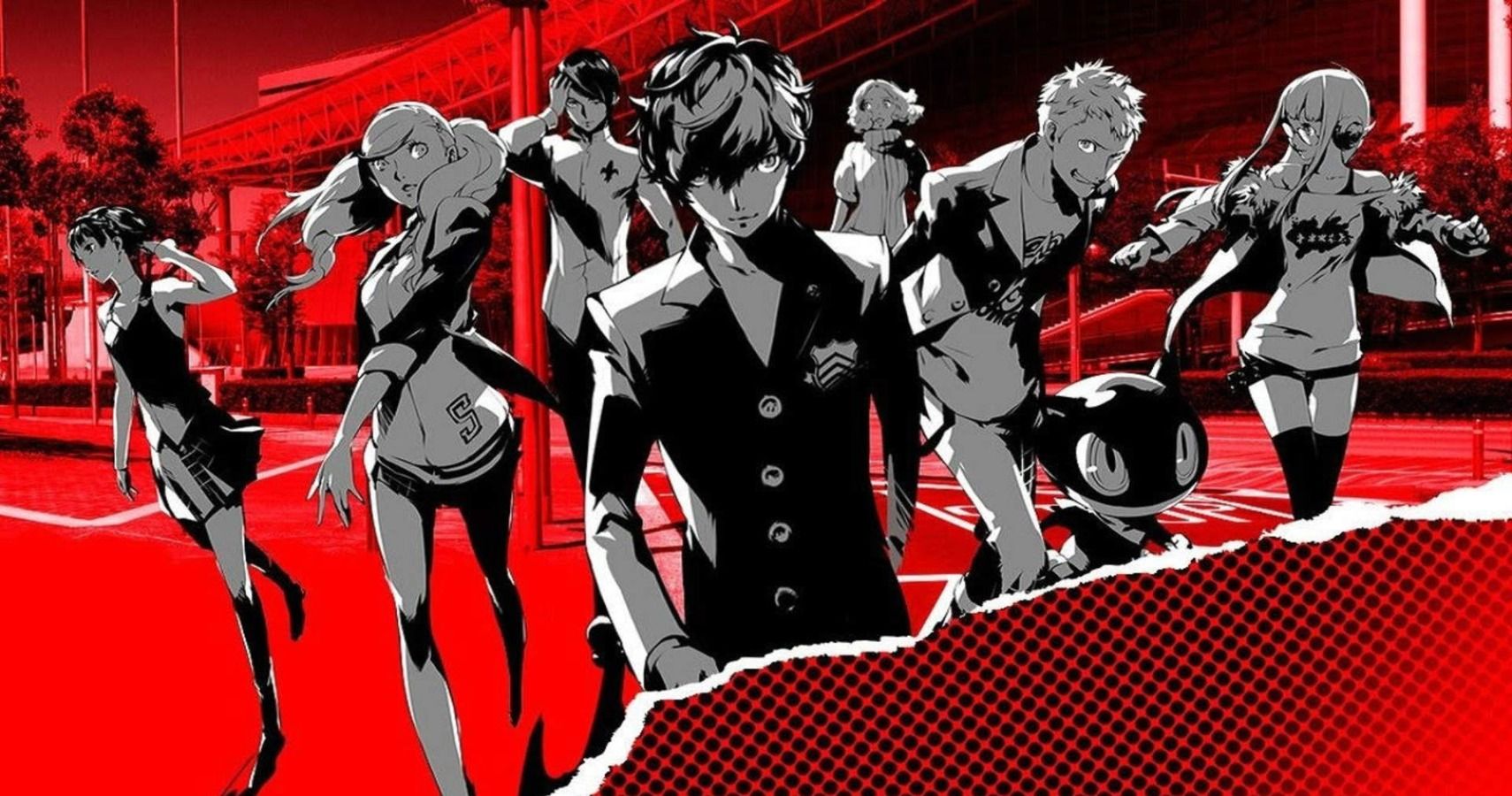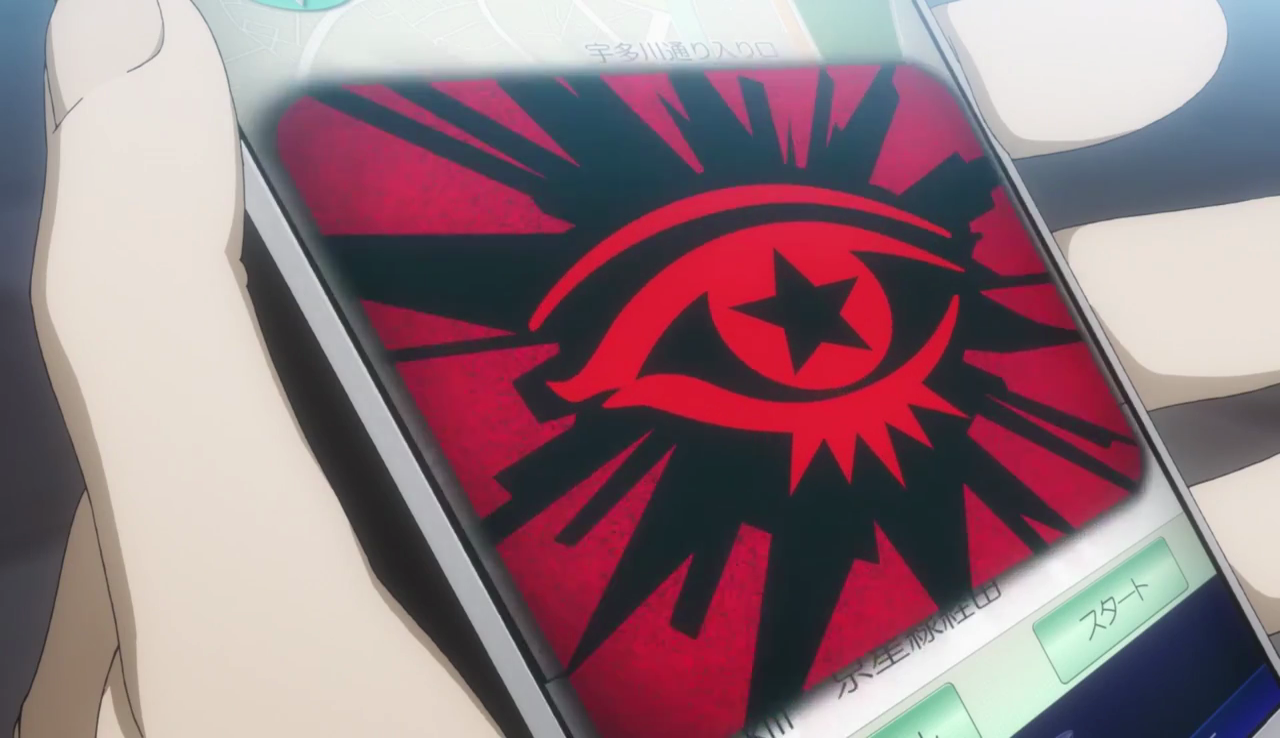Persona is not exactly a very ordinary series. It’s not every day that a strange old man summons you to a limousine or prison cell in order to explain that, actually, you can conjure elemental demons to fight allegorical manifestations of social injustice in a parallel universe now. Don’t forget about maths, though - you can’t take down a palace ruler unless you ace tomorrow’s trig test. You need to study those angles if you’re going to successfully ricochet a real bullet shot from a toy gun, eh? There’s a good Joker.
It’s interesting that these two aspects of Persona - the actual Persona “attack and dethrone God” bits and the social sim backbone the series has become known for over the years - are often seen as diametrically opposed. In many ways, Persona - particularly Persona 5, which I’m assuming whoever is reading this has played at least some of - appears to be a game of two distinct halves. But it’s important to at least acknowledge how deeply academic Persona’s entire basis is. The Metaverse, Mementos, tarot cards, and the entire concept of unearthing your true power after removing the mask covering your heart are naturally linked to psychoanalysis. I mean, the whole basis for Castles or Palaces or Jails is basically just Carl Jung 101, except with extra demons.
I don’t think that’s a revelation and I’m sure a lot of people knew about it already. This is how the series has functioned for years, and Persona 4 addresses Jung in a pretty explicit way. What I’m here to talk about today has nothing to do with archetypes, though, or what it means to play the fool in a story where hell usurps heaven as the masses become enslaved by the collective unconscious’ descent into apathy, which is all a bit grim. Nah, I’m here to bang on about weird mobile apps and tellies that eat you.
You can’t just magic your way to the Metaverse - close your eyes, count to ten, do a little twirl, and shout “Morgana!” Instead, you need an entry point. Persona 4 and Persona 5 offer an intriguing spin on this, using televisions and mobile phones as a sort of metaphysical bridge to the other world. This might seem a bit gimmicky, and maybe it is - although it’s also worth studying these objects for what they represent.
I don’t mean to go all Black Mirror here, but it’s apt for Persona to use globally ubiquitous pieces of relatively new tech to serve this specific narrative function - especially given that they both fall under the umbrella of screen hardware. It goes beyond, “Is Google listening to you?” or “5G made my son’s head explode!” It’s a far more pointed peering through the looking glass, or, more specifically, a means of obfuscating the demystified. There’s a reason why so many ads play in Persona 4 and why you text your mates every day in Persona 5. The objects you use to access the Metaverse have everyday significance, but they’re also imbued with this ambiguous power that brilliantly juxtaposes the mundane with the extraordinary. People might want to go to the gym with Ryuji or hang out with Yukiko after school, but that’s not the extent of this series’ famous indulgence in the mundane for the sake of enchanting the utterly boring. It’s the fact that even the most spectacular parts of these games are tied to these specific things - functional circuits that power a screen, a window, ostensibly a piece of real-life magic that is in fact sufficiently robotic to be entirely defunct of it. Magic in the modern world is very different from its literary predecessors, with fireballs and abracadabra largely having been replaced by sparks in a box.
This is where the idea of Persona 6 begins to feel a bit weird for me. Sure, we know next to nothing about it yet, but what could the Metaverse bridge be? Tellies are so normal now that you can get them built into fridges and bathtubs. Phones have already been done to death, with Strikers eschewing the Metaverse app for a cutting edge AI. Is there any other everyday screen that manages to capture the zeitgeist this well by exhibiting a mixture of ubiquity and exemplifying the latest spike in the constantly exponential proliferation of tech? The Wii U, maybe. I’m messing, relax.
I have full faith in the fact that Persona 6 will get the Jung aspects of the Metaverse right. Atlus has nailed that basis already, and to be honest, Persona 5’s use of Mementos tops most of what came before in that regard, so it’s on a hot streak right now. But Persona is also something that combines the most surreal landscapes and premises with emphatically real, existing, and improving technology. Futaba’s pyramid and Okumura’s space station are just one example of what is quite clearly an intentional and consistent thematic juxtaposition at the heart of Persona 5, both of which also use this game’s Metaverse device in fascinating ways. Futaba uses her phone to contact you while keeping her identity a secret, while Okumura constantly blows Haru off while barking orders at his subordinate down the blower. You might say, “It’s a modern game, obviously there are phones about,” but every time you see that phone you subconsciously recognize its closeness to the core rule of the game’s functionality. Chekhov’s iPhone, if you will.
I don’t know. Maybe Persona 6 will make use of a flying car or FitBit, reasoning that wearing a FitBit is in and of itself an unconscious expression of proving that yes, you do count your steps in a world filled with social media 10ks and personal bests. Maybe it will use a smart fridge you can play Doom on or a pregnancy test modded to run Skyrim. No matter what direction it opts to go in, I’m excited to see what Atlus has up its sleeve - I just can’t reasonably see how the current trend of tellies and phones can be accurately adhered to, and I’d really love to see that explored in more detail.



